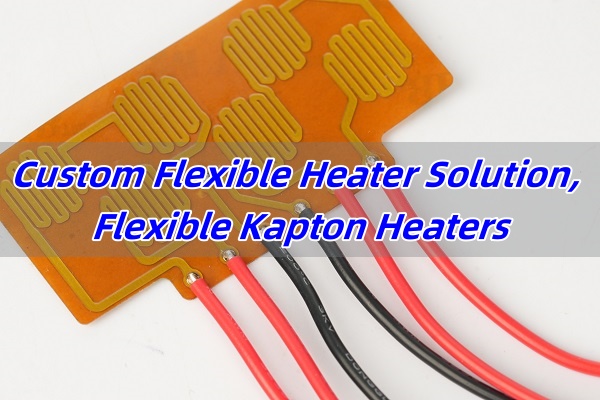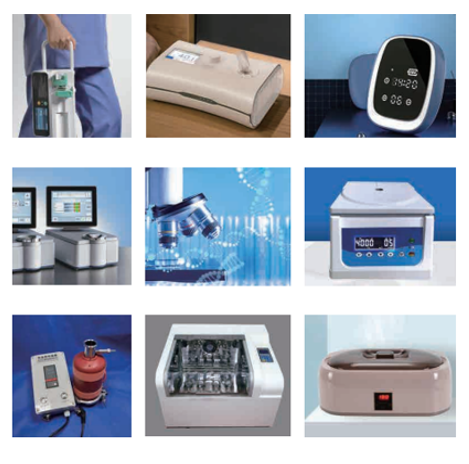Are you facing these heating challenges in your projects?
At Danyu Electronics, we understand these pain points and offer tailored custom flexible heater solutions:
In this blog, we would like to introduce the flexible heater advantages, application compared to traditional heating film, and tell you how to choose the suitable heaters for your prject. If you want to know more about flexble heaters or kapton flexible heating elements, welcome to contact us at sales@best-heaters.com.
A custom flexible heater is an ultra-thin heating device made from a finely etched metal foil resistor laminated between layers of polyimide insulation. It produces heat by passing voltage through the resistive element. Operating efficiently across a wide temperature range—typically from -40°C to 280°C—it offers remarkable flexibility with a bending radius as small as 1.0 mm.
Our heaters feature polyimide leads and are built with customized materials, achieving resistance precision within ±0.5% or ±0.2 ohms. They’re engineered to withstand harsh conditions, including vacuum environments with gas emission rates as low as 0.1%, resistance to acid and alkali corrosion, and tolerance to radiation up to 10 rads. With insulation resistance surpassing 500 megaohms at 500V DC, these heaters ensure both safety and durability.

A Kapton flexible heater offers several distinct advantages:
These qualities make Kapton heaters a reliable choice for demanding industries that require long-lasting, efficient heating.
Kapton flexible heaters operate on the principle of electrical resistance. A thin metallic foil or etched circuit is embedded between layers of Kapton polyimide film (like below). When voltage passes through the circuit, it converts electrical energy into heat.

The unique structure of a flexible Kapton heater ensures quick thermal response and even heat distribution. Since Kapton is stable from -40°C to +280°C, it works reliably in extreme cold and heat. This wide operating range is one of the main reasons industries choose Kapton over other flexible heater materials.
Custom flexible heaters are used in diverse sectors:
In each case, custom flexible heaters are chosen for their adaptability and stability under specific operating conditions.

The design of flexible heating elements requires comprehensive consideration of multiple factors, including material properties, installation specifications, safety risks, and performance optimization. Key considerations include:
Highly heat-resistant and flexible substrates are preferred. For example, polyimide (PI) heating film offers a temperature resistance of up to 280°C, epoxy resin sheets offer excellent mechanical properties, and silicone heating sheets are weather-resistant and corrosion-resistant, suitable for conforming to complex shapes. Different material types must be tailored to the temperature control requirements of the application.
Ensure the heating element is firmly bonded to the heated object to prevent detachment. When using pressure-sensitive adhesives or mechanical clamps, eliminate wrinkles and air bubbles to prevent localized overheating. Leads should be fixed in place to prevent breakage caused by pulling, and wiring should be concealed to minimize safety hazards.
Power densities >0.4W/cm² must be connected to a heat sink (such as a metal plate or silicone pad). Avoid installing high-power heating elements (>0.8W/cm²) in the air to ensure efficient heat transfer. The voltage must strictly match the rated value to prevent overload and overheating.
The installation location must be protected from liquid or steam environments. If used in semi-outdoor locations such as display windows, ensure that no water droplets come into contact with the screen to prevent short circuits. The minimum bend radius (e.g., 0.8mm for PI films) must be controlled to prevent sharp objects from piercing the film.
The risk of dry heating can arise from adhesive failure or cell expansion and strain. Designs must allow for expansion space and strengthen bonding strength. Temperature control devices should be installed to prevent overheating during unattended operation. Overlapping heating films can increase the risk of localized overheating and should be avoided.
For medical devices, outdoor equipment, or wearable products (such as heated vests), optimized heating area distribution and temperature uniformity are required. The use of PTC technology can enhance self-regulation and save energy.
Choosing the right flexible heater material is critical for optimal performance and durability. Below is a comparison of three common types of flexible heaters: Kapton Flexible Heater, Silicone Rubber Heater, and Transparent Heater. This overview highlights their key features including material, voltage, power, power density, and insulation resistance to help you make an informed decision.
| Feature | Kapton Flexible Heater | Silicone Rubber Heater | Transparent Heater |
| Material | Polyimide film | Silicone rubber | Transparent conductive film (e.g., ITO) |
| Voltage Range | 0-380V | 0-220V | 0-220V |
| Power Density | 0-1.2 W/cm² | 0-1 W/cm² | 0.15 W/cm² |
| Insulation Resistance | >500 MΩ @ 500V DC | Around 100 MΩ @ 500V DC | Generally lower, depending on material and thickness |
| Flexibility | Excellent; minimum bend radius ~1.0 mm | Good, but thicker; minimum bend radius ~5 mm | Excellent; very thin and flexible |
| Operating Temperature Range | -40°C to +200°C | -40°C to +280°C | Typically below 100°C |
| Chemical & Environmental Resistance | Excellent; resistant to acids, alkalis, and radiation | Good; resistant to oils and many chemicals | Moderate; prone to scratching and UV damage |
| Typical Applications | Aerospace, medical, electronics, battery warming | Automotive seat heaters, industrial equipment, consumer electronics | Glass defogging, display heating, transparent surfaces |
So in a word:
When selecting a flexible Kapton heater, consider:
Working closely with an experienced manufacturer like Danyu electronics helps balance performance and cost.
There are several ways to install custom flexible heaters:
The mounting method should be chosen based on temperature limits, vibration exposure, and service requirements.
Danyu electronics specializes in custom flexible heater solutions for industries that demand evenly heating and fast heat transfer. Our Kapton flexible heaters are produced followed ISO standards, certificated with RoHS and SGS.
We provide:
Whether you need a single prototype or mass production, our team delivers heaters that meet your exact specifications. If you have other questions about flexible heaters or some technical consult about it, welcome to leave your message as below or contact us right now!
Simply drop your email or phone number in the contact form, and we'll promptly reply you shortly.